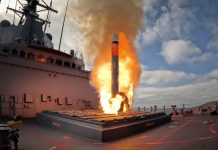By Vaishali Basu Sharma
In an analysis published in the Foreign Policy Magazine, columnist Lynne O’Donnell explains “How an Afghan Drug Kingpin Became Beijing’s Man in Kabul.” O’Donnell chronicles how an Afghan drug kingpin, who served a life sentence in the United States, has now become the “key conduit for growing ties between China and the Taliban.”
Bashir Noorzai was released in 2023 from a US prison in a trade for an American hostage, former US Navy diver Mark Frerichs, and has now gone into business with China, setting up “murky joint-venture deals with Chinese firms in Afghanistan.”
Prior to his arrest in 2005 on drug charges, Noorzai was the ultimate don of the heroin trade in Afghanistan and was referred to as the “Pablo Escobar of Afghanistan.”
Returning home a hero, O’Donnell writes that Bashir Noorzai is a confidant of the supreme leader of the Taliban, Hibatullah Akhundzada, and close to the Taliban’s acting foreign minister, Amir Khan Muttaqi.
Such high level contacts have helped him snag contracts for his company, ‘Afg-Chin Oil’ and Gas Ltd. Equating him to “one of the warlords,” to researcher Javed Noorani, an expert on Afghanistan’s mining sector says people like Bashir Noorzai who have no experience in the mining industry are able to receive contracts was due to Afghanistan’s “nontransparent bidding process” and, most importantly, his friendship with the top man.
Seeped in conflict, Afghanistan’s fate has been shaped by the influence of powerful warlords, who often dictate the country’s politics. Their formidable support is crucial for any functional government in Kabul.
The US “war on terror” in Afghanistan incongruously renewed the influence of the warlords who were deeply involved with the drug trade. Considered the backbone of Afghanistan’s polity, Afghan warlords, the warlords with their alliances and territorial control, remain pivotal players in Afghanistan’s intricate political landscape.
And despite the change in government and the Taliban takeover of Kabul, their influence remains intact. Leader of the Noorzai tribe, Bashir has significant influence over the community, with a web of connections spun over years of shadowy dealings. Most of his “business activity is in the southern poppy belt centered on the province of Helmand.”
On December 1, 2023, the new Taliban ambassador to China, Bilal Karimi, arrived in Beijing, marking the first ambassador the Taliban have sent to another country since seizing power in 2021.
One of the few countries to accept the credentials of the Taliban representatives, China has immense interests in Afghanistan’s valuable mineral deposits, including lithium, copper, and rare earth elements.

Contracts for Chinese mining firms are bringing in hundreds of millions of dollars for the Taliban, and it appears that druglords like Bashir Noorzai act as key intermediates in the negotiations.
Significant contracts Noorzai has brokered include a $3 billion deal for the Mes Aynak copper mine, nestled in the province of Logar, located approximately 30 km south-south-east of Kabul, and a $500 million agreement for a natural gas project.
China’s Xinjiang Central Asia Petroleum and Gas Co, or CAPEIC, signed a major 25-year oil extraction contract with Taliban authorities in Afghanistan last year. CAPEIC will invest $150 million by the first year and a total of $540 million by 2026.
These rentier operations have generated substantial cash flow into Afghanistan, and the Taliban’s treasury earned about $26 million from the project last year.
The Chinese plan to dig 22 additional wells in the Amu Darya basin, the river border with the Central Asian states of Uzbekistan and Tajikistan, which is estimated to contain 962 million barrels of crude oil and 52,025 billion cubic feet of natural gas, according to a 2011 assessment by the US Geological Survey.
CAPEIC reportedly aims to increase daily production to more than 2,000 tons, or about 15,000 barrels. Interestingly, Bashir Noorzai’s company has an exploration contract to study the hydrocarbon potential near the Amu Darya.
John Sopko, the special inspector general for Afghanistan reconstruction, states that the Taliban are campaigning for more Chinese investment and have “reportedly asked” to join the China-Pakistan Economic Corridor and Belt and Road Initiative.
- Vaishali Basu Sharma is a strategic and economic affairs analyst. She has previously worked as a consultant with India’s National Security Council Secretariat (NSCS).
- The author can be reached at postvaishali (at) gmail (dot) com




